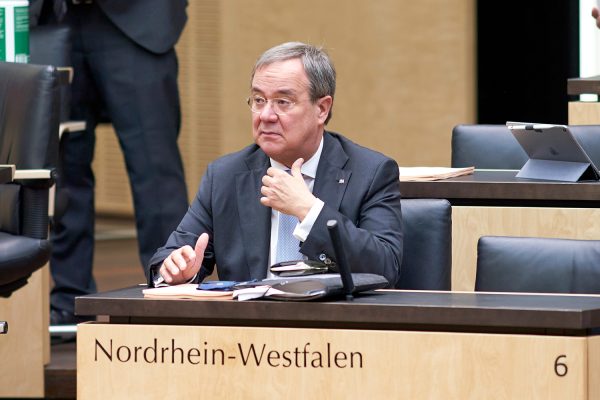
It’s too soon to tell you I told you so. The German election is still a month away. But it is starting to look like the ruling Christian Democrats made a mistake nominating Armin Laschet, the prime minister of North Rhine-Westphalia, for the chancellorship.
Laschet would succeed Angela Merkel, who is not seeking a fifth term after sixteen years in power.
I argued in December and April that Markus Söder, the prime minister of Bavaria, was the better candidate.
The Christian Democrats misread the national mood. They looked at Merkel’s high approval rating and thought Germans wanted more of the same. They don’t. Söder could have given the conservatives a fresh start.
Not serious
Söder is a modernizer. His state leads Germany in terms of higher education, innovation, life expectancy and renewable energy. North Rhine-Westphalia has been slow to diversify its economy away from the heavy industries of the past. Laschet has done little to accelerate that transition.
Söder took decisive action during the COVID-19 pandemic, locking Bavaria down ahead of other states. Laschet dragged his heels in North Rhine-Westphalia and gave a €40 million contract for face masks to an acquaintance of his fashion-model son without issuing a public tender.
Laschet’s unseriousness was caught on video last month, when he joked around with other onlookers while President Frank-Walter Steinmeier answered questions from reporters about this summer’s flooding of the Rhine, which killed 184 Germans.
Polls
Support for the Christian Democrats has fallen from a high of 40 percent a year ago to 22-25 percent in recent surveys, putting them neck and neck with the Social Democrats and not far ahead of the Greens, who are polling at 17-19 percent.
Social Democratic Party leader Olaf Scholz, the outgoing finance minister, is more popular than either Laschet or Annalena Baerbock of the Greens.
Coalition options
Laschet’s unpopularity has made the September election unexpectedly competitive. Up until a few months ago, the expectation in Berlin was that the Christian Democrats would form the next government with the resurgent Greens. Now such a combination would fall short.
The Christian Democrats and Social Democrats are wary of renewing their two-party “grand coalition”. The liberal Free Democrats, polling at 12-13 percent, could be pivotal. They could either give the Christian Democrats and Greens a majority in a so-called “Jamaica” coalition, named after the colors of the Caribbean nation’s flag, or the Social Democrats and Greens in a “traffic flight” coalition.
A left-wing coalition of Social Democrats, Greens and Die Linke, the successor to the former East Germany’s ruling communist party, is technically possible but less likely. Die Linke‘s policies for the EU and NATO are too radical for the center-left. A confidence-and-supply agreement, under which Die Linke would support a minority Social Democratic-Green government in confidence and budget votes, is possible.
